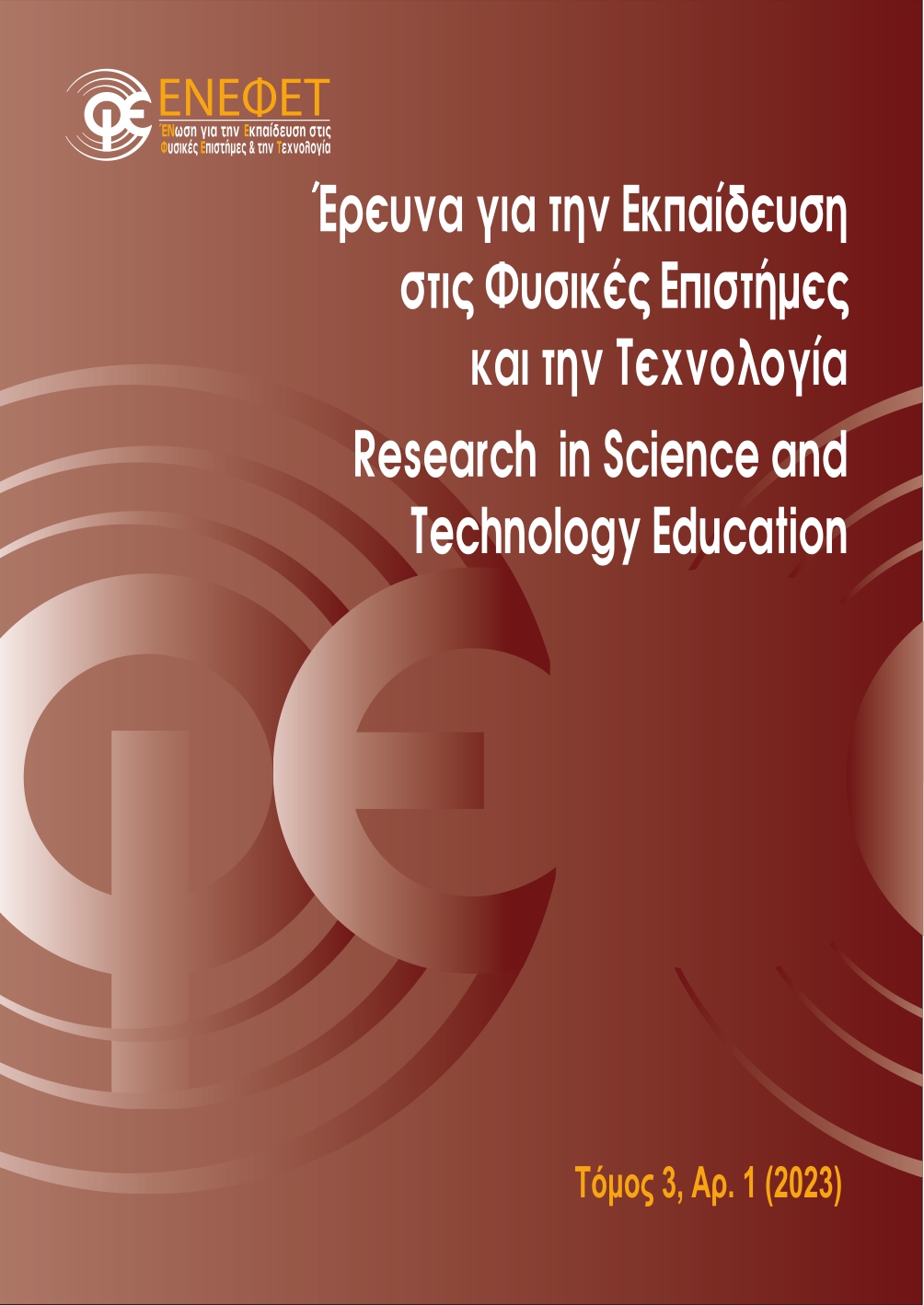Σχεδιασμός ενός εργαλείου διερεύνησης των αντιλήψεων των σχεδιαστών δραστηριοτήτων ενός Φεστιβάλ Επιστήμης Η ανάδειξη του θεωρητικού πλαισίου και ο μετασχηματισμός του σε μεθοδολογική προοπτική

Περίληψη
Το παρόν άρθρο έχει ως στόχο να θέσει τα θεωρητικά και μεθοδολογικά θεμέλια για τη μελέτη των αντιλήψεων των σχεδιαστών σχετικά με τη διαδικασία σχεδιασμού δραστηριοτήτων που αποτελούν μέρος της δράσης εκείνης η οποία είναι γνωστή ως διαδραστική έκθεση ενός φεστιβάλ επιστήμης. Πιο συγκεκριμένα, κατ' αρχάς πρόκειται να παρουσιάσουμε ένα γενικό θεωρητικό πλαίσιο προερχόμενο από τρία ερευνητικά πεδία κοινό χαρακτηριστικό των οποίων είναι ο μετασχηματισμός της επιστημονικής γνώσης όταν αυτή αποτελεί αντικείμενο εκπαίδευσης ή/και δημόσιας κατανόησής της. Στη συνέχεια, θα επιχειρήσουμε να συγκροτήσουμε μια εκδοχή θεωρητικού πλαισίου το οποίο όμως να έχει λειτουργικό χαρακτήρα, δηλαδή, να είναι δυνατή η προσαρμογή του στις ειδικές συνθήκες της διάδοσης της επιστημονικής γνώσης σε περιβάλλον διαδραστικής έκθεσης ενός φεστιβάλ επιστήμης και, συγχρόνως, να μπορεί να οδηγεί σε μια μεθοδολογική προοπτική της αντιμετώπισης του βασικού ερευνητικού ερωτήματος. Τέλος, θα παρουσιαστεί λεπτομερώς η στρατηγική και η τεχνική διερεύνησης των αντιλήψεων των σχεδιαστών μιας τέτοιας διαδραστικής έκθεσης, ενώ θα αναδυθούν και επί μέρους ερευνητικές υποθέσεις ως προϊόντα αυτής ακριβώς της διαδικασίας τεκμηρίωσης της μεθοδολογικής στρατηγικής που θα περιγράψουμε.
Λεπτομέρειες άρθρου
- Πώς να δημιουργήσετε Αναφορές
-
Παππά Ε., & Κολιόπουλος Δ. (2023). Σχεδιασμός ενός εργαλείου διερεύνησης των αντιλήψεων των σχεδιαστών δραστηριοτήτων ενός Φεστιβάλ Επιστήμης: Η ανάδειξη του θεωρητικού πλαισίου και ο μετασχηματισμός του σε μεθοδολογική προοπτική. Έρευνα για την Εκπαίδευση στις Φυσικές Επιστήμες και την Τεχνολογία, 3(1), 1–22. https://doi.org/10.12681/riste.33664
- Ενότητα
- Άρθρο Ερευνητικό
Οι συγγραφείς διατηρούν τα πνευματικά δικαιώματα και παρέχουν στο περιοδικό το δικαίωμα της πρώτης δημοσίευσης μαζί με την αδειοδότηση της εργασίας με CC-BY-NC-SA, που επιτρέπει σε άλλους να μοιράζονται αυτή την εργασία με αναγνώριση του συγγραφικού δικαιώματος και την αρχική δημοσίευση σε αυτό το περιοδικό.


